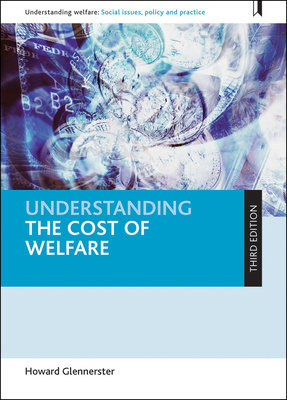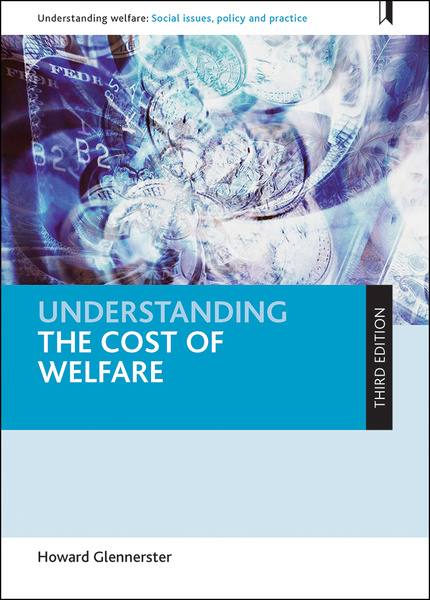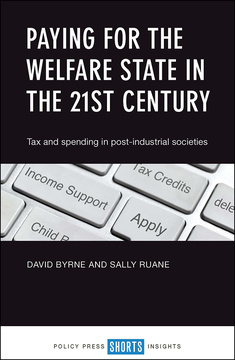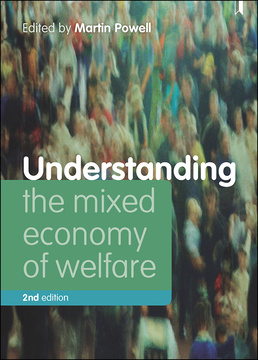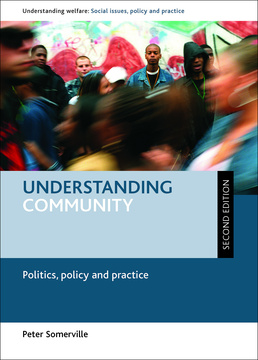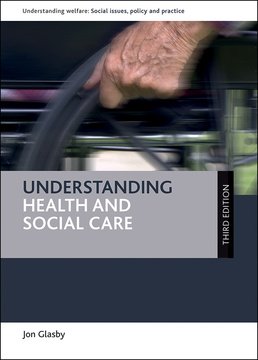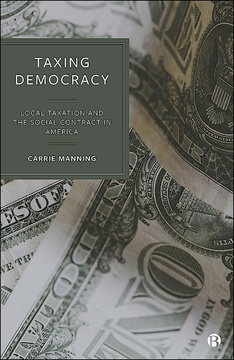Understanding the Cost of Welfare
By Howard Glennerster
Published
May 24, 2017Page count
288 pagesEdition
3rd EditionBrowse the series
Understanding Welfare: Social Issues, Policy and PracticeISBN
978-1447334040Dimensions
240 x 172 mmImprint
Policy PressPublished
May 24, 2017Page count
288 pagesEdition
3rd EditionBrowse the series
Understanding Welfare: Social Issues, Policy and PracticeISBN
978-1447334033Dimensions
240 x 172 mmImprint
Policy PressPublished
May 24, 2017Page count
288 pagesEdition
3rd EditionBrowse the series
Understanding Welfare: Social Issues, Policy and PracticeISBN
978-1447334057Dimensions
Imprint
Policy PressPublished
May 24, 2017Page count
288 pagesEdition
3rd EditionBrowse the series
Understanding Welfare: Social Issues, Policy and PracticeISBN
978-1447334064Dimensions
Imprint
Policy PressThe challenge of meeting the growing cost of welfare is one of the most pressing issues facing governments of our time. Glennerster’s authoritative Understanding the cost of welfare assesses what welfare costs and how it is funded sector-by-sector. The book is written in a clear, accessible style, ideally suited to both teaching and study, and the general reader.
This substantially revised third edition includes:
•Discussion of the many funding issues now facing welfare states, such as demographic change, tax resistance, slow growth and austerity programmes
•The theory and practice of devolved tax and budgetary responsibilities between UK nations and in comparison with other countries
•New chapters on pensions and post-16 education
•More regular and extensive comparative analysis
Divided into 3 sections, covering Principles, Service funding, and The Future, the book Includes questions for discussion and suggestions for further reading, making it an easy-to-use, essential resource for both undergraduate and post-graduate students of Social Policy, Sociology, Politics and Public Administration.
"This new edition could not be more timely or policy-relevant as policymakers around the world confront the challenges of adequately funding the welfare state." Jane Waldfogel, Professor of Social Work and Public Affairs, Columbia University
“This book provides an expert, wide ranging review of the key evidence and arguments from economics as they relate to Social Policy. Because economic claims are so fundamental to, and ubiquitous in, the current debates on welfare, it is essential reading for anyone seeking to articulate an informed position on this subject.” Jeremy Kendall, School of Social Policy, Sociology and Social Research, University of Kent
“Understanding the costs and financing of welfare has rarely been so lively, engaging and real. Howard Glennerster has produced a text of outstanding scholarship, essential for undergraduate and postgraduate courses right across the social sciences.” Chris Deeming, Reviews Editor for the Journal of Social Policy and Chancellor's Fellow and Senior Lecturer, University of Strathclyde, UK
"If we are concerned about the role of welfare in society, we need to understand how it is paid for, and how we might pay for it in the future. Glennerster is the acknowledged expert on these questions and he addresses both in this new edition of his established text, providing critical guidance on current practices and their problems, and outlining the challenges that we will face and how best to respond." Pete Alcock, Emeritus Professor of Social Policy & Administration, University of Birmingham
Howard Glennerster is Professor Emeritus of Social Policy at the London School of Economics and Political Science. He has been an advisor to Her Majesty's Treasury and to the Secretary of State for Health. He is a Fellow of the British Academy, a Fellow of the Royal Society of Arts and an Academician of the Social Sciences section of the Learned Societies.
Part One: Principles;
The cost of welfare;
Market failure and government failure;
What to tax. Who to tax. How much to tax;
Rationing – who gets what?;
Part Two: Service funding;
Cash benefits: Pensions;
Cash benefits: During working age;
Paying for Health Services;
Paying for Care;
Paying for Education: Schools;
Paying for Education: Post school;
Shelter;
Part Three: The Future;
The future.







